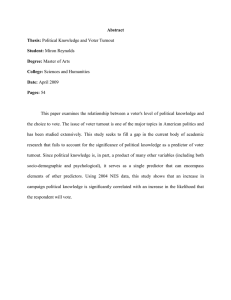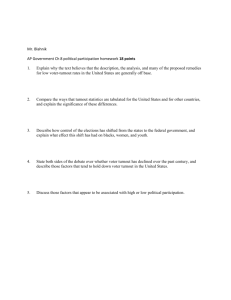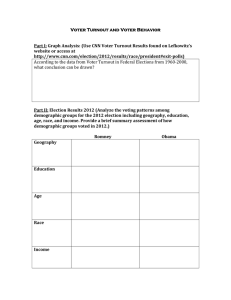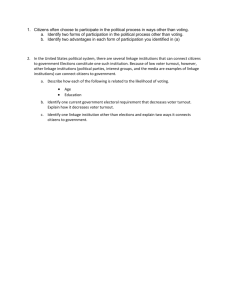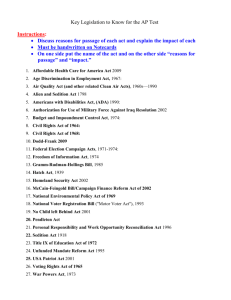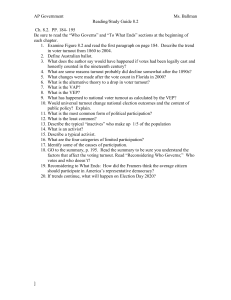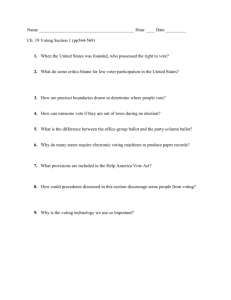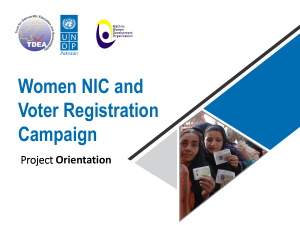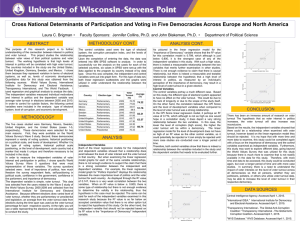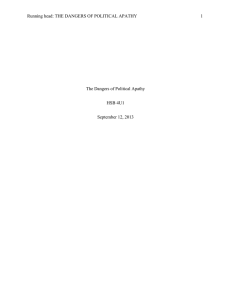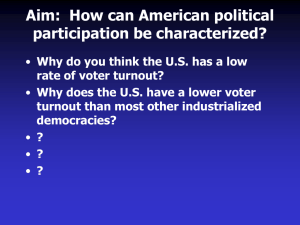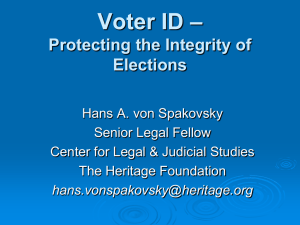2004 Question 4
advertisement
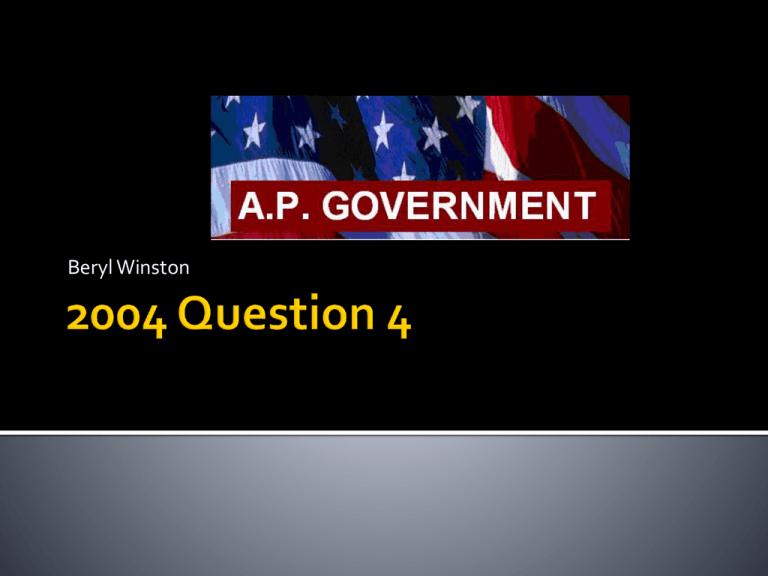
Beryl Winston “Trust and confidence in government have declined in recent decades.” A. Explain how divided government has contributed to the decline in trust and confidence in government. Give a definition of divided government in your response. Divided government: the president is a member of one political party and at least one chamber of Congress (either the Senate or the House of Representatives) is controlled by the opposite party. Because in a divided government one party can check the other's agenda, it is exceedingly difficult for a party to carry out its policies. Divided party governments in modern times have affected voter behaviors. The inability of a party to bring its promises to fruition has contributed to voter disillusionment in the democratic system, decreasing trust and confidence in government. b. Explain how the increase cost of election campaigns has contributed to the decline in trust and confidence in government - Candidates get the money to finance their campaign from donors in the form of campaign contributions. The people who donate may expect something (like a kickback) in return for their contribution. As candidates require more and more money to become elected, the likelihood or the appearance of "buying" the candidate increases dramatically. The appearance of a candidate being "bought" means that people will question whether this person has their best interest in mind when they are elected. This has raised concern that elected representatives might become more accountable to powerful donors than to their electorates. c. Explain 2 specific consequences of the decline in trust and confidence in government for individual political behavior. 1) Lower voter turnout: Ex. 1996 presidential election, less than 50% voter turnout. Much lower than other democracies around world like Australia where they have more than 90% voter turnout. Ex. Most recent midterm elections have experienced the lowest voter turnout (percentage wise) since the ratification of the 19th Amendment 2) De-Alignment (a trend or process whereby a large portion of the electorate abandons its previous partisan affiliation, without developing a new one to replace it ): - Decrease in party loyalty - increase in registration as independents and for third parties like the Green Party In late September 1995, questions arose regarding the Democratic National Committee's fund-raising practices. In February the following year, the People's Republic of China's alleged role in the campaign finance controversy first gained public attention after the Washington Post published a story stating that a U.S. Department of Justice investigation had discovered evidence that agents of China sought to direct contributions from foreign sources to the DNC before the 1996 presidential campaign. The paper wrote that intelligence information had showed the Chinese Embassy in Washington, D.C. was used for coordinating contributions to the DNC in violation of U.S. law forbidding nonAmerican citizens from giving monetary donations to U.S. politicians and political parties. Seventeen people were eventually convicted for fraud or for funneling Asian funds into the U.S. elections.
